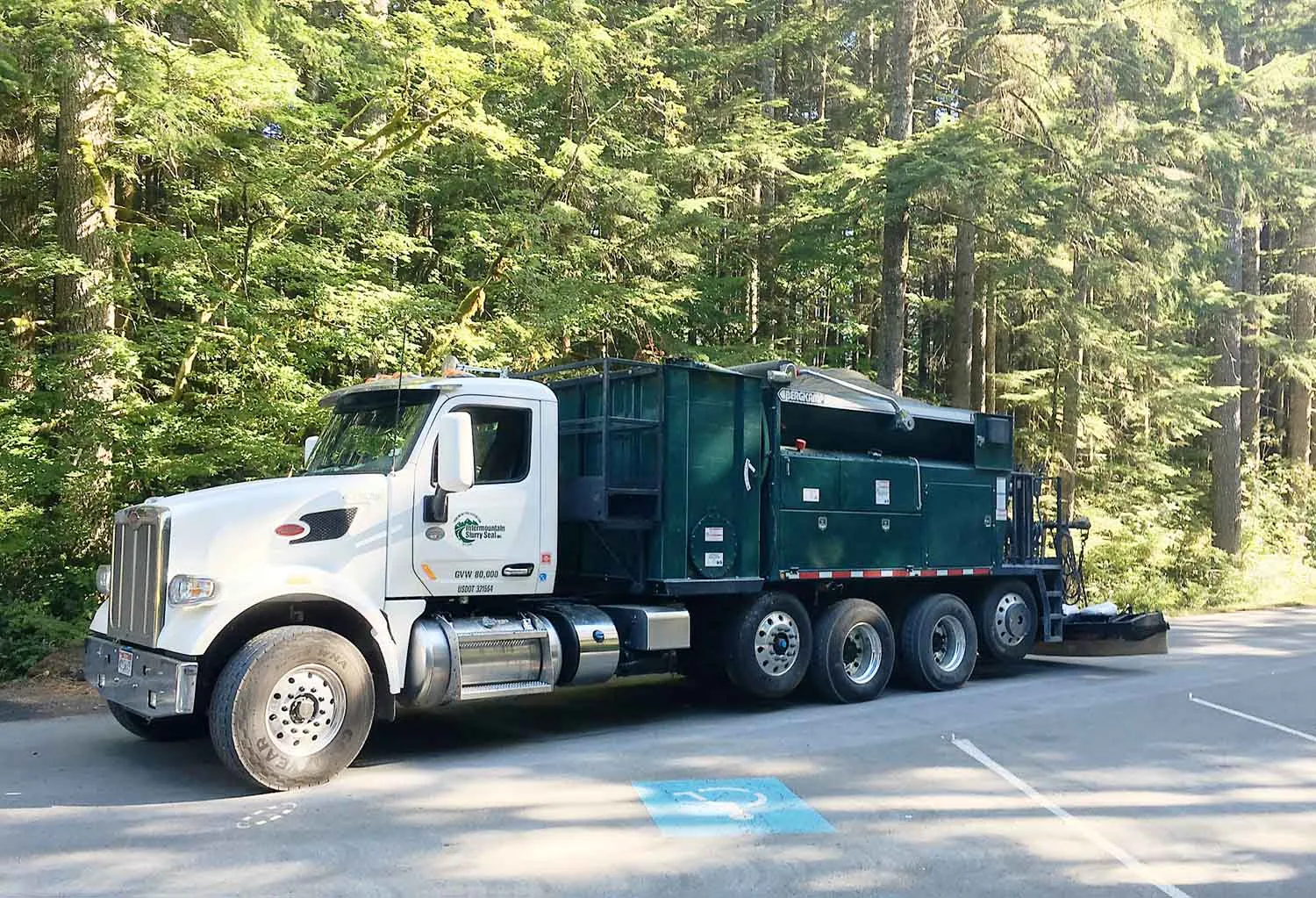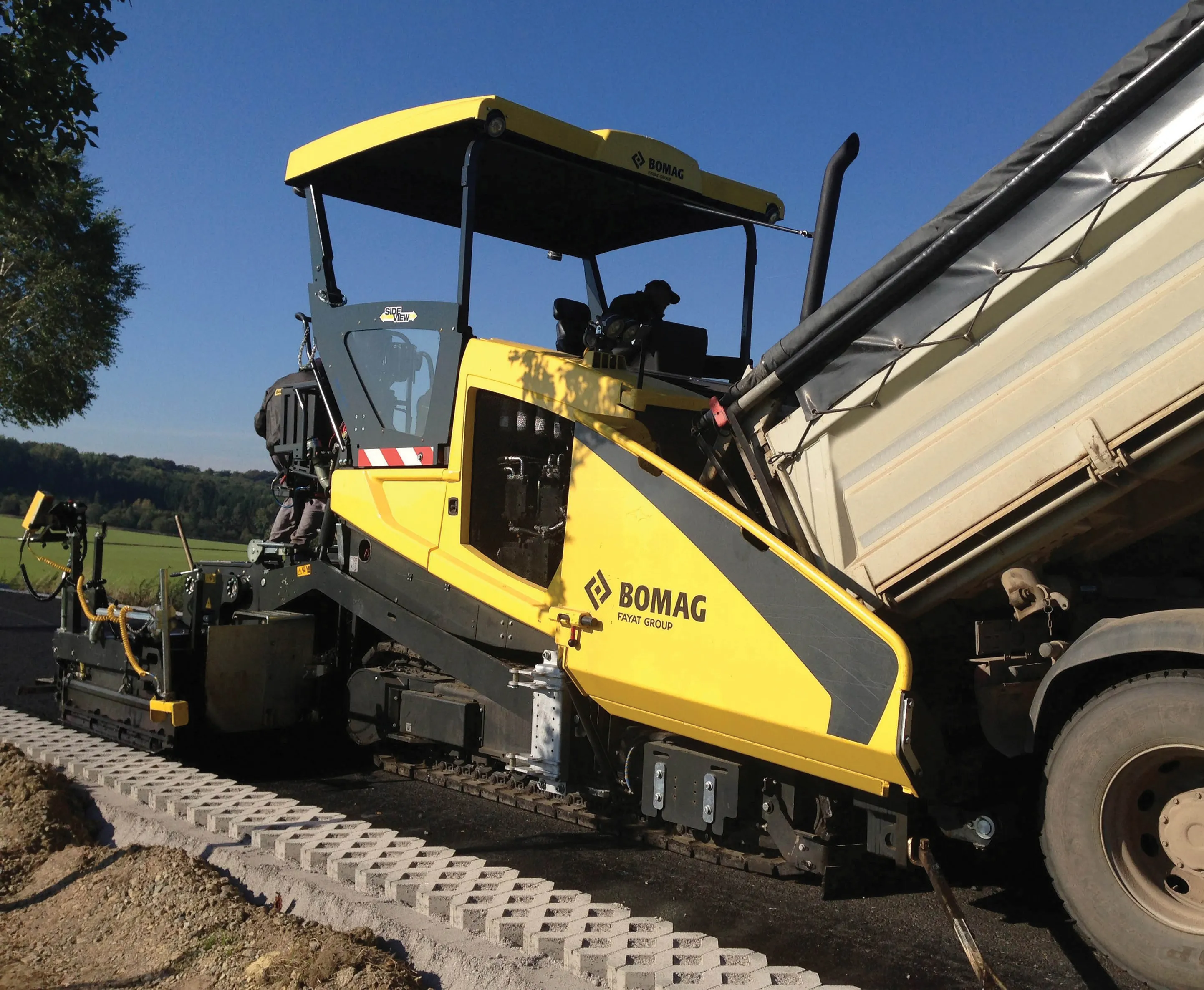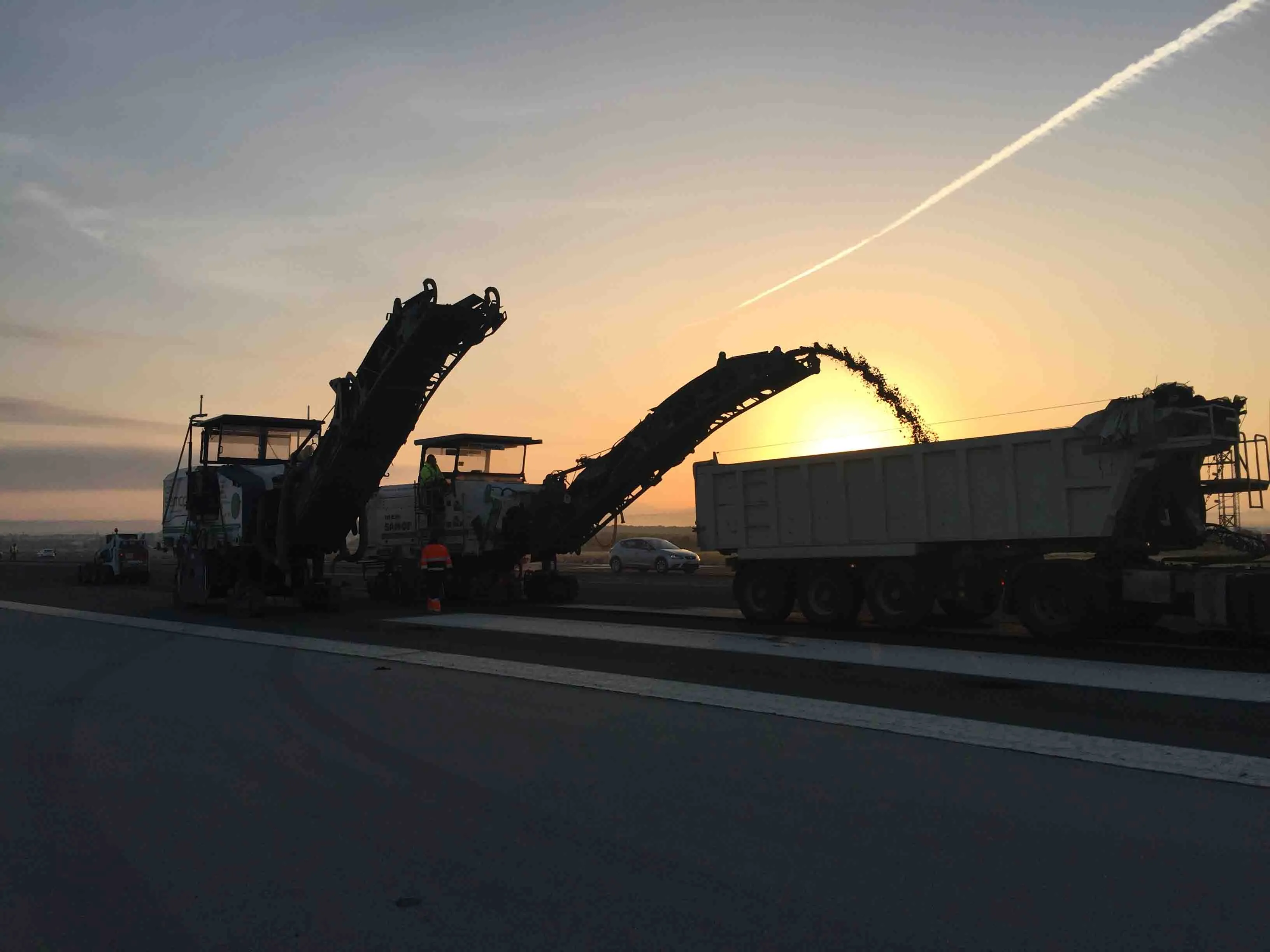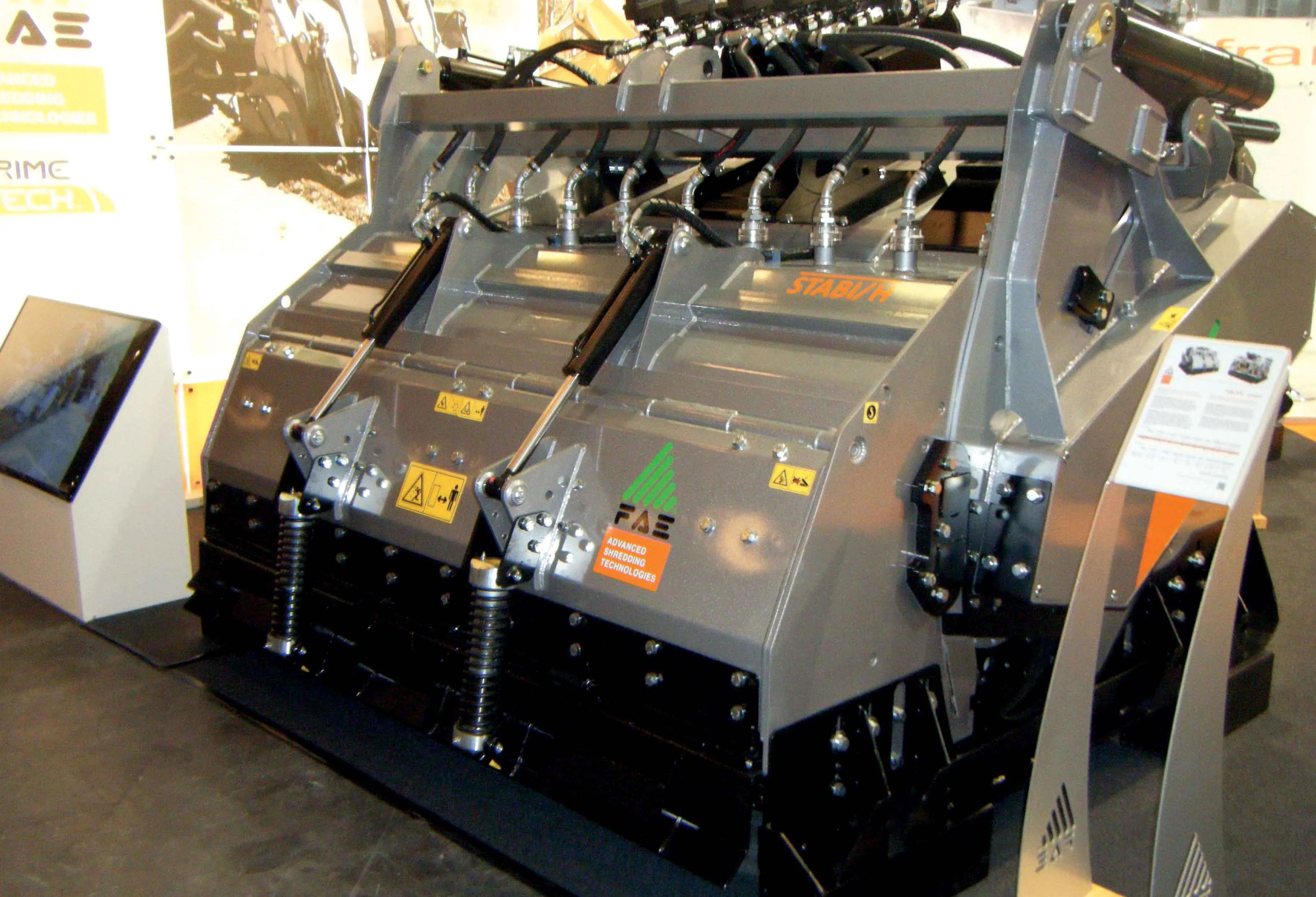Bergkamp is introducing the M310CS truck-mounted slurry seal and micro surfacing paver, with power coming from its Tier 4 emissions compliant truck engine. With PTO-driven hydraulic pumps, the M310CS has eliminated the need for a side engine. This reduces exhaust emissions, noise and vibration while delivering power and performance equal to the side engine package that is standard on the M310 Paver. The M310CS is said to be productive and features the sophisticated electronic mix control and diagnostic (EMC
February 27, 2017
Read time: 3 mins

The proven EMCAD System displays current and average material ratios, total material used and material application rates. The firm says that this allows operators to calibrate the machine, control production rates and simplify maintenance. The EMCAD package can produce on-demand reports to track production for individual sections of the job, or the entire job, via an onboard printer. Operators can evaluate these printouts and make the necessary adjustments to more efficiently run the machine and calculate the bottom line.
The M310CS has direct-drive hydraulics that are controlled by the EMCAD System. The system monitors and adjusts material ratios automatically according to the set points of the ingredients, production control setting and instantaneous feedback from the delivery system sensors to provide consistent mix. Aggregate, asphalt emulsion, water, additive and fines are proportionally delivered and metered according to the set points, as per mix design. In addition, it electronically self-diagnoses control system and displays a simple error code, reducing troubleshooting and repair time. Calibration is simplified, so fewer steps are required and manual calculations are eliminated. The firm says that this allows less experienced operators to quickly make adjustments during production without compromising the mix accuracy.
The M310CS carries 9.1m3 of aggregate, 2,385litres of both asphalt emulsion and water and 303litres of additive. It is based on the proven design that has earned Bergkamp’s equipment widespread respect from its customers. As part of its many ergonomic features, the operator interface console has easy-to-use joystick controls and slides to either side to provide the operator with the best available view. The pugmill safely slides out for easier cleaning; the bottom bowl stays in the paver, while the excess material falls out of the bottom for a faster cleaning job. The low position of the fines feeder makes it easily accessible for loading. All liquid tanks are removable for maintenance.
Aggregate is delivered to the pugmill by a belt-over-chain conveyor, which eliminates slippage, while the steep hopper walls minimise bridging problems. A positive displacement pump, three-way valve and inline strainer allow trouble-free loading of asphalt emulsion onto the truck, so new material can be loaded at full rate without affecting the production settings.









